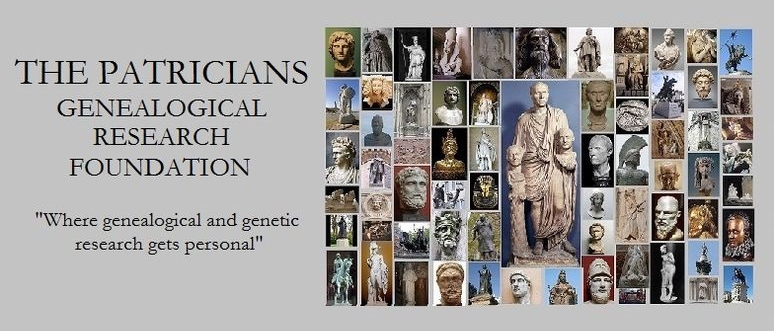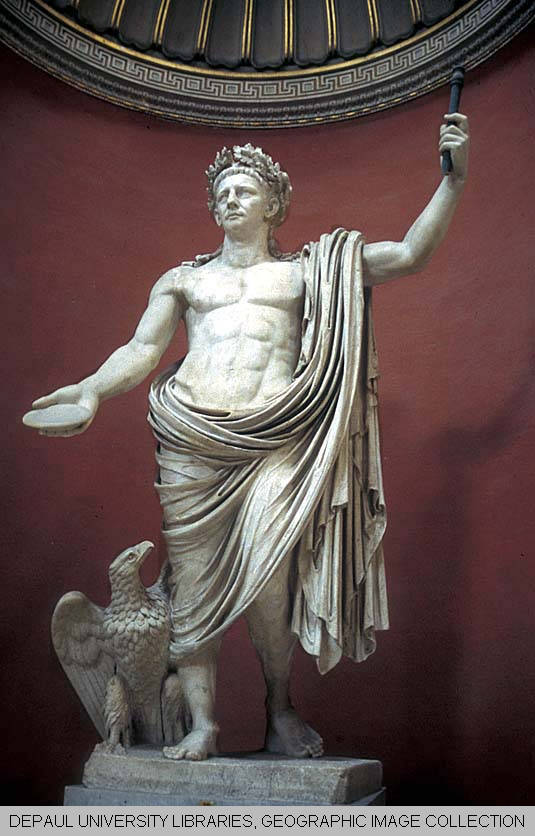
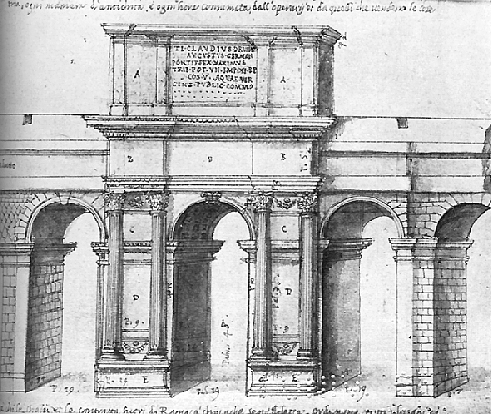
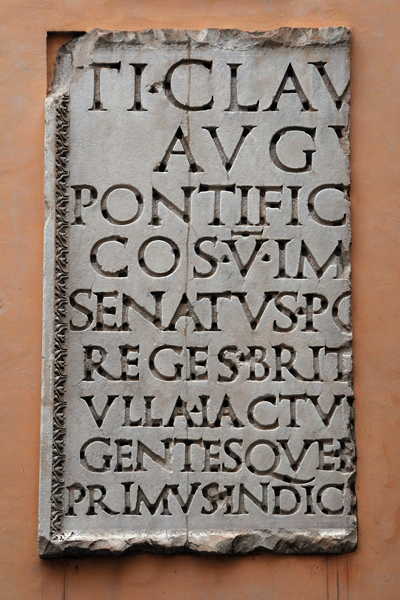
“The Senate and People of Rome [dedicated this] to Tiberius Claudius Caesar Augustus Germanicus…because he received into surrender eleven kings of the Britons conquered without loss and he first brought the barbarian peoples across the Ocean under the authority of the Roman people.”
“The senate on learning of his achievement gave him the title of Britannicus and granted him permission to celebrate a triumph. They voted also that there should be an annual festival to commemorate the event and that two triumphal arches should be erected, one in the city and the other in Gaul, because it was from that country that he had set sail when he crossed over to Britain.”
Cassius Dio, Roman History (LX.22.1)
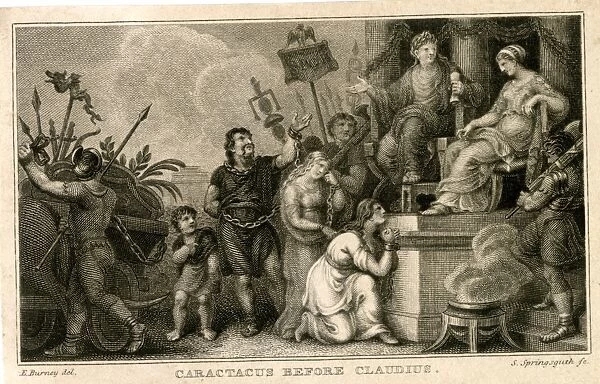
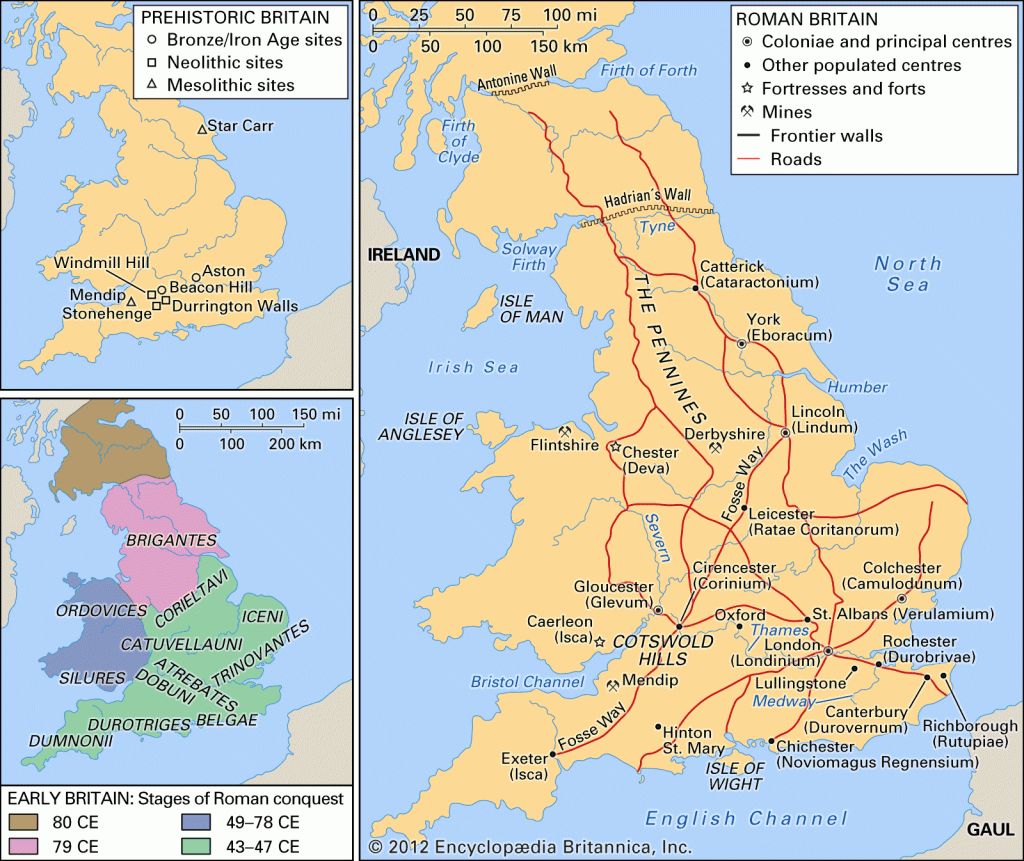
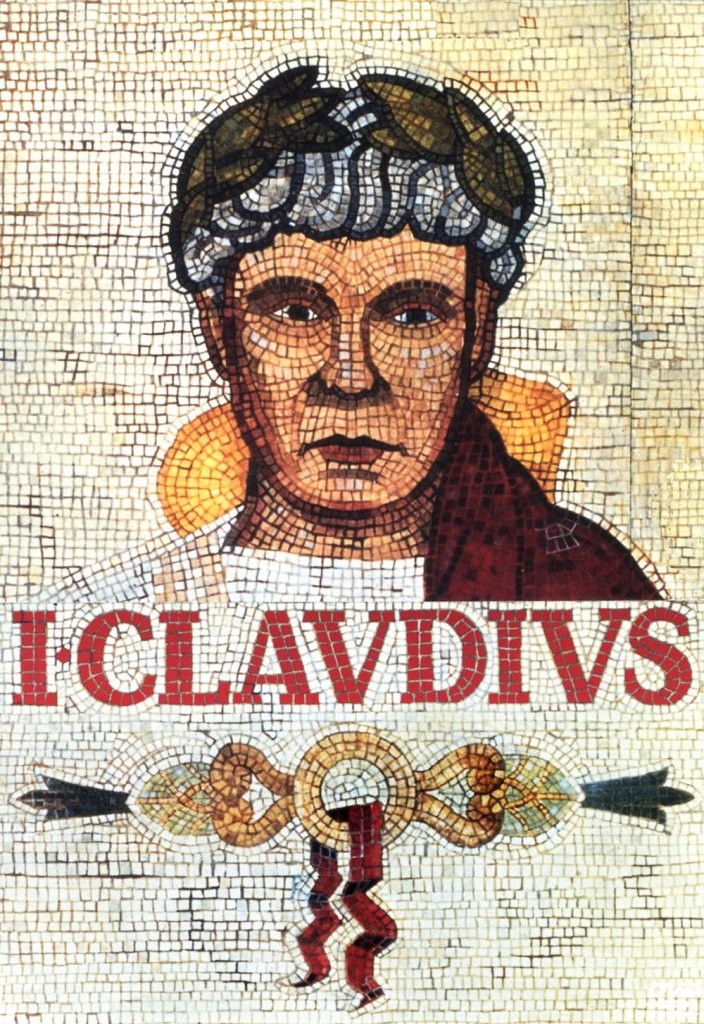
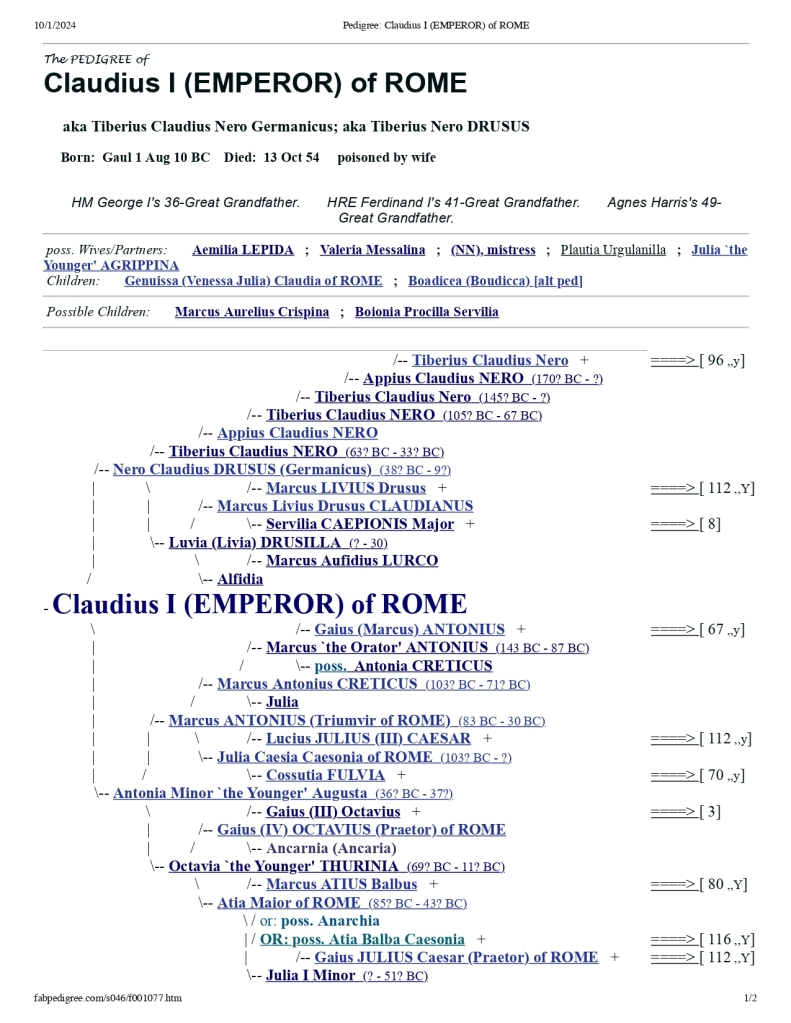
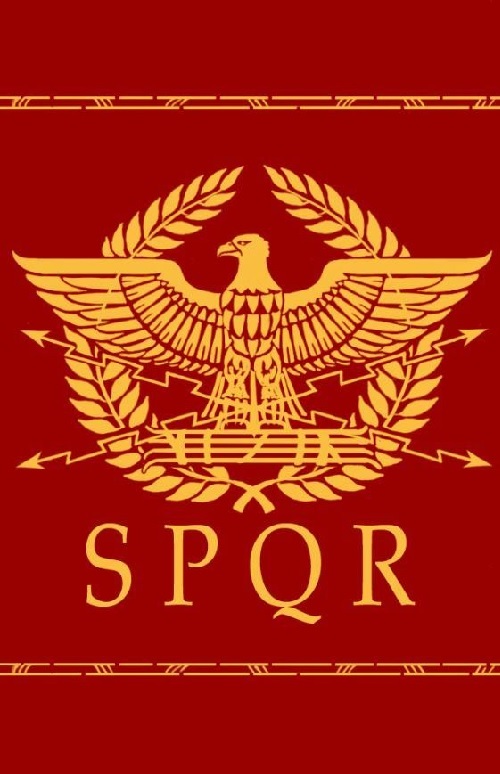
King Caratacus attempted to expel the Romans from Britain. He was finally defeated and captured. He and his family were subsequently transported to Rome for execution on the order of Emperor Claudius. Before the sentence was carried out, Caratacus was brought before him at his court to hear his official execution decree. In response, Caratacus gave a speech pleading for mercy that was so compelling and eloquent that Claudius immediately rescinded the decree. He later gave Caratacus one of his daughter’s hand in marriage. She married his brother (or cousin) King Arvirargus instead. Caratacus spent the rest of his life in exile in Rome residing in peace at the Palatium Brittanicum (a villa built by his ancestors as a British diplomatic embassy during the reign of Julius Caesar) on Esquiline Hill. His son Linus became the first Catholic Bishop of Rome.
The legendary Brutus of Troy conquered Britain during the 12th century BC after his expulsion from Rome as punishment for killing his parents (albeit accidentally). An agnatic descendant of Aeneas “The Dardanian” (1245 – 1175 BCE), Ascansius, his grandfather, founded Alba Longa (c. 1152 BCE). Brutus may well have been either the brother or agnatic cousin of Romulus, the First King of Rome, and his brother Remus. the primogenitors of gens Julii (of which, Julius Caesar was an agnatic descendant). Claudius was a direct descendant of the lineage, both paternally and maternally.
Roman General Gaius Julius Caesar first invaded Britain in 55 BC. The expeditionary force consisting of only two Roman Legions was summarily routed by the army formed by the Britons tribal alliance. He came better prepared for the second invasion almost a year later, but it was largely rebuffed, although the negotiation for his withdrawal from the island yielded an important concession that the Brits would pay Rome an annual tribute to cease all further military incursions. The Britons lived at peace with Rome for nearly a century before Emperor Claudius decided to renege on the armistice agreement.
Claudius and Julius shared a common interest in history, both being prolific authors during their respective “life and times”. Of the two, Claudius had more of a scholarly interest in history, whereas Julius was mainly a chronicler of contemporary events, often as an interpreter and propagandist, in his experience as a statesman, general, and emperor. Both left an indelible mark on history as authors. What is known about their Roman eras is their legacy to historians, both past and present.
The portrayal of Claudius in the BBC series I, Claudius (1976) captures the essential ethos and pathos of a Roman patrician who no one, including his family members, would have ever thought it possible he would one day ascend to rule the Roman Empire. The physical and mental frailities he exhibited until then made him regularly the brunt of jokes and derisive comments, even to his face, from almost every quarter as well as social isolation from his peers and the public. Instead of producing a debilitating inferiority complex as a result, one gets the impression due to his nonplussed attitude in regular response that his demeanor had a purpose behind it, perhaps many. Firstly, to realize a measure of enough sympathy for his disabilities to label him as a non-combat in the dangerous struggle, quite often mortal, between the ranks of power-hungry Romans who were robust enough to challenge the status quo in pursuit of their political ambitions. Secondly, wisely sensing that active involvement in Roman Machiavellianism was a fruitless waste of time and effort, he was content to survive as a keen observer of the political arena and pursue his scholarly passion in history all the while. Thirdly, biding his time that way to take advantage of the right opportunity to express his unbeknownst ambition to ascend to the emperorship in a bloodless coup (except for the assassination of Caligula) was an exceptionally rational strategy of a highly intelligent and potentially capable Roman leader. After Caligula’s assassination, he simply bribed the Praetorian Guard (maybe before) who killed him in order to install and protect Claudius as the successor Emperor of the Roman Empire. They did so with little or no muss or fuss about it afterward from any quarter.
Miraculously, as canny Emperor Claudius openly admitted, many of his frailties, such as stammering and walking with a limp, began to disappear. His reign from 41 to 54 AD is generally considered by historians as successful in bringing about a higher level of social prosperity for Romans than before and expanding the Roman Empire’s territorial rulership to a considerable degree. However, the one glaring fraility he wasn’t able to overcome, that is, his choice of wives, the last of which allegedly poisoned him to death.
The British vassal state he acquired remained under Roman rule until the early 5th century without much contest. except one. In 60 AD Boudica “Victoria” (died circa 60 AD) Warrior Queen of Iceni led an uprising that decimated two Roman Legions and slaughtered many of the pro-Roman Empire Britons. Finally defeated, she committed suicide rather than being taken into captivity. She was an agnatic descendant of Brutus of Troy, eponymous founder and 1st King of Britain (1150 – 1091 BC), and granddaughter of Lludd Llaw Eraint ap Beli Mawr, King of Britons (80 BC – 18 BC) (who led the Britons in defense against Roman General Gaius Julius Caesar’s two invasion attempts as aforementioned).
Related ancestral blog articles:
Dardanus of Arcadia, First King of Dardania & Scythia (1519 – 1414 BC)
Brutus of Troy (1150 – 1091 BC) 1st King of Britons, Eponymic Founder of Britain
Marcus Antonius, General, Triumvir of the Roman Republic (83 – 30 BC)
Alexander the Great of Macedonia (356 – 323 BC)
Antiochus III Seleucid, Emperor of Seleucid Greek Empire (223 – 187 BC)
Tiberius Claudius Caesar Augustus Germanicus
Birth 1 Aug 10 BCE in Lyon, Rhône, Rhône-Alpes, France
Death 13 Oct 54 in Rome, Roma, Lazio, Italy
58th great-grandfather COELING-DESPOSYNI-MEROVECH-CAPET-ROHAN-LANDRY-BOURG-CYR-BRULE
61st great-grandfather COELING-WESSEX-HOWARD-WOOD-COLLINS
great-grandfather of 2nd cousin 60x removed COELING-WESSEX-HOWARD-WOOD-COLLINS
5th cousin 70x removed JULII-COELING-EWYAS-CORNOUAILLE-PORHOET-ROHAN-LANDRY-BOURG-CYR-BRULE
husband of 3rd cousin 62x removed COELING-VERE-WARREN-HOLLAND-SIMMONS-COLLINS
SOURCES
iClaudius: Idiot Emperor or Master Troller?
History Cooperative – Claudius
Emperor Claudius: 14 Facts about an Unlikely Hero
The Patricians, A Genealogical Study – Ebook Editions US$5.95
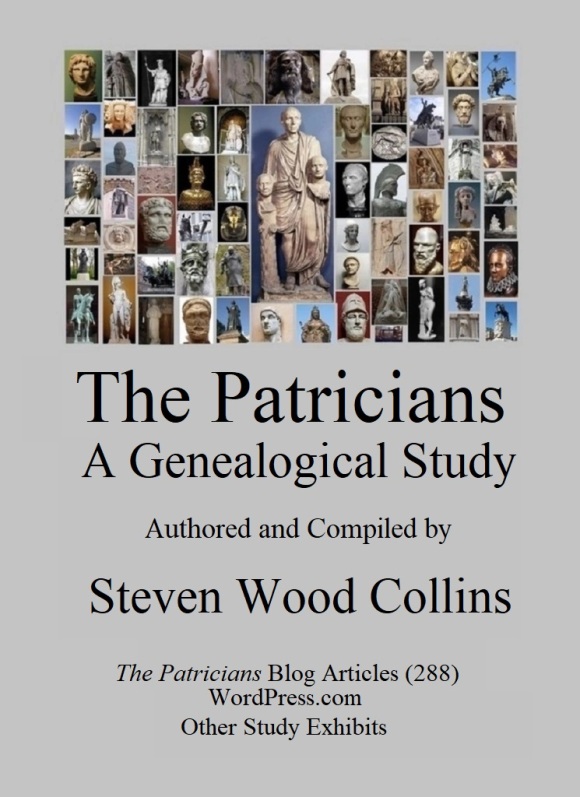

Steven Wood Collins (1952 – ) Antiquarian, Genealogist, Novelist
